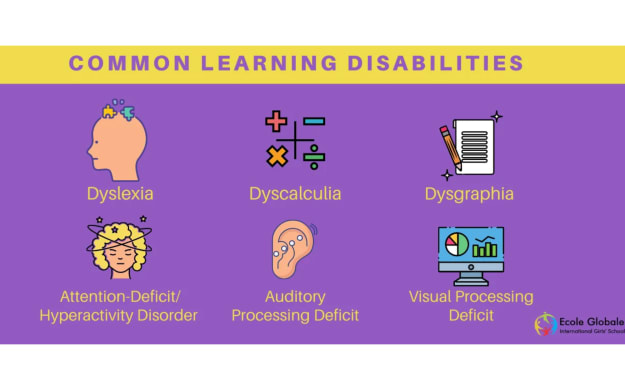
In the world of fruit, there exists an old saying that holds profound wisdom: "One rotten orange can spoil the whole batch." This age-old adage transcends the realm of horticulture and extends into the broader spectrum of life itself. It encapsulates a fundamental truth that can be observed in various facets of human existence. The idea that a single negative element, left unchecked, can have a domino effect and taint everything around it is a concept that has universal applicability. In this essay, we will explore the significance of this saying and demonstrate how it holds true in areas as diverse as personal relationships, workplace dynamics, and societal structures.
At first glance, it might appear overly simplistic to suggest that the presence of one spoiled orange in a crate can ruin all the others. However, the analogy becomes clearer when we think about how negativity can spread. Consider a group of close friends who share a bond built on trust and mutual support. If just one member of this group starts harboring resentment, jealousy, or deceit, their negativity can seep into the group's dynamics. This toxicity can erode trust and create a rift among the friends, potentially leading to the disintegration of the entire group. In this way, one person's negative influence can tarnish the harmony and goodness that once prevailed.
The workplace is another arena where the adage "One rotten orange can spoil the whole batch" holds true. When a team functions effectively, it is like a well-orchestrated symphony. Every member contributes their unique skills and talents, creating a harmonious work environment. However, the introduction of a single individual with a negative attitude or poor work ethic can disrupt the entire dynamic. The negative influence can spread like a virus, demotivating other team members and undermining their commitment to the organization's mission. This can lead to a decrease in overall productivity, strained relationships, and potentially, the departure of valuable team members who no longer wish to be part of a toxic work environment.
Now, let's examine how this adage applies to societal structures. In any society, the overall well-being and harmony are dependent on the actions and behaviors of its members. A single individual who engages in criminal activities or promotes hate speech can have a profound impact on the community. Their actions can incite fear and distrust among the population, leading to a breakdown in social cohesion. This can result in a cycle of negativity and conflict that may take years to rectify. In extreme cases, the actions of one individual can even lead to widespread violence and civil unrest, as we have seen in various historical and contemporary examples.
The idea of "one rotten orange" extends to the global stage as well. International relations, like any other relationship, depend on trust and cooperation among nations. A single nation's aggressive or hostile actions can trigger a chain reaction, resulting in a breakdown of diplomacy, the escalation of conflicts, and potential global consequences. The presence of a "rotten" nation can disrupt peace and stability in the entire world.
In a broader philosophical context, this saying raises questions about the nature of human behavior and our capacity for both good and evil. Why is it that the presence of one negative element can have such a powerful impact? Is it because negativity is more contagious than positivity, or is it because we are inherently drawn to drama and conflict? These questions point to the complexities of human psychology and the challenges of maintaining a harmonious existence in a world where negativity seems to hold a stronger grip.
In light of the far-reaching implications of this saying, it is imperative to consider how to prevent the spread of negativity and preserve the goodness around us. The first step is awareness. Recognizing when a "rotten orange" is present, whether in our personal lives, workplaces, or society, is crucial. This awareness enables us to address the issue before it escalates and infects the entire environment.
Another crucial aspect is intervention. When we identify a negative influence, it is essential to take proactive steps to mitigate its impact. This might involve confronting the individual responsible, seeking professional help when needed, or even removing the source of negativity from the environment. In the workplace, for instance, a responsible management team should address toxic behavior swiftly and decisively to protect the overall health of the organization.
Education and awareness campaigns can also play a vital role in preventing the spread of negativity. By teaching people about the consequences of their actions and promoting positive values, we can create a more conscious and responsible society. In the long run, this can help reduce the prevalence of "rotten oranges."
Additionally, fostering a culture of kindness, empathy, and tolerance is key to safeguarding against the spread of negativity. When individuals and communities prioritize these values, it becomes more challenging for negativity to take hold and thrive. By supporting one another and promoting a culture of inclusivity, we can collectively resist the influence of "rotten oranges."
In conclusion, the saying "One rotten orange can spoil the whole batch" encapsulates a fundamental truth about the pervasive influence of negativity. Whether in personal relationships, the workplace, societal structures, or global affairs, the presence of a single negative element can have far-reaching and destructive consequences. Recognizing the potential for negativity to spread is the first step in preventing its destructive influence. By being vigilant, taking proactive measures, and promoting positive values, we can strive to create environments where the goodness is resilient against the intrusion of "rotten oranges." In doing so, we can work towards a more harmonious and constructive world for all.
About the Creator
Elias
Reading serves as a gateway to knowledge, offering a vast universe of ideas, information, and inspiration waiting to be explored. It is a powerful tool that opens doors, ignites curiosity, and fuels personal and intellectual growth.
Enjoyed the story? Support the Creator.
Subscribe for free to receive all their stories in your feed. You could also pledge your support or give them a one-off tip, letting them know you appreciate their work.






Comments (1)
Fascinating to learn about this! Great work!